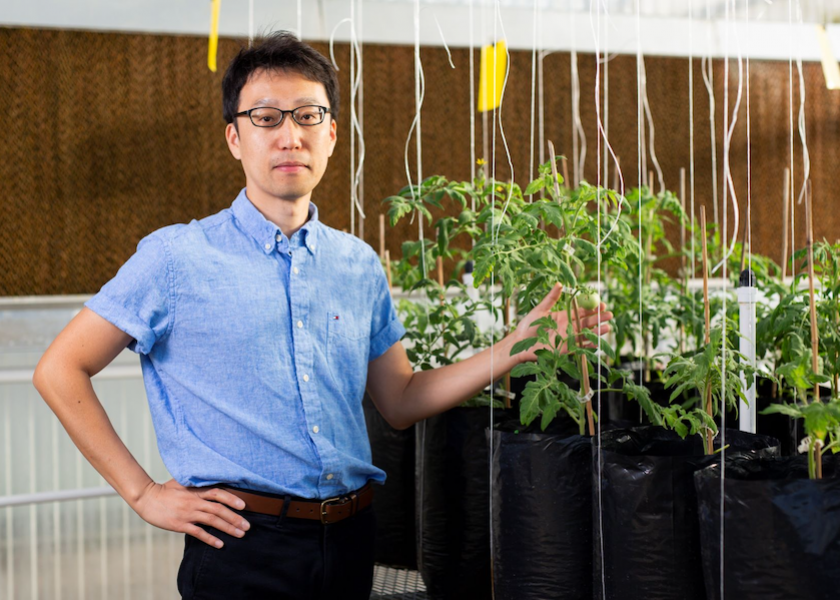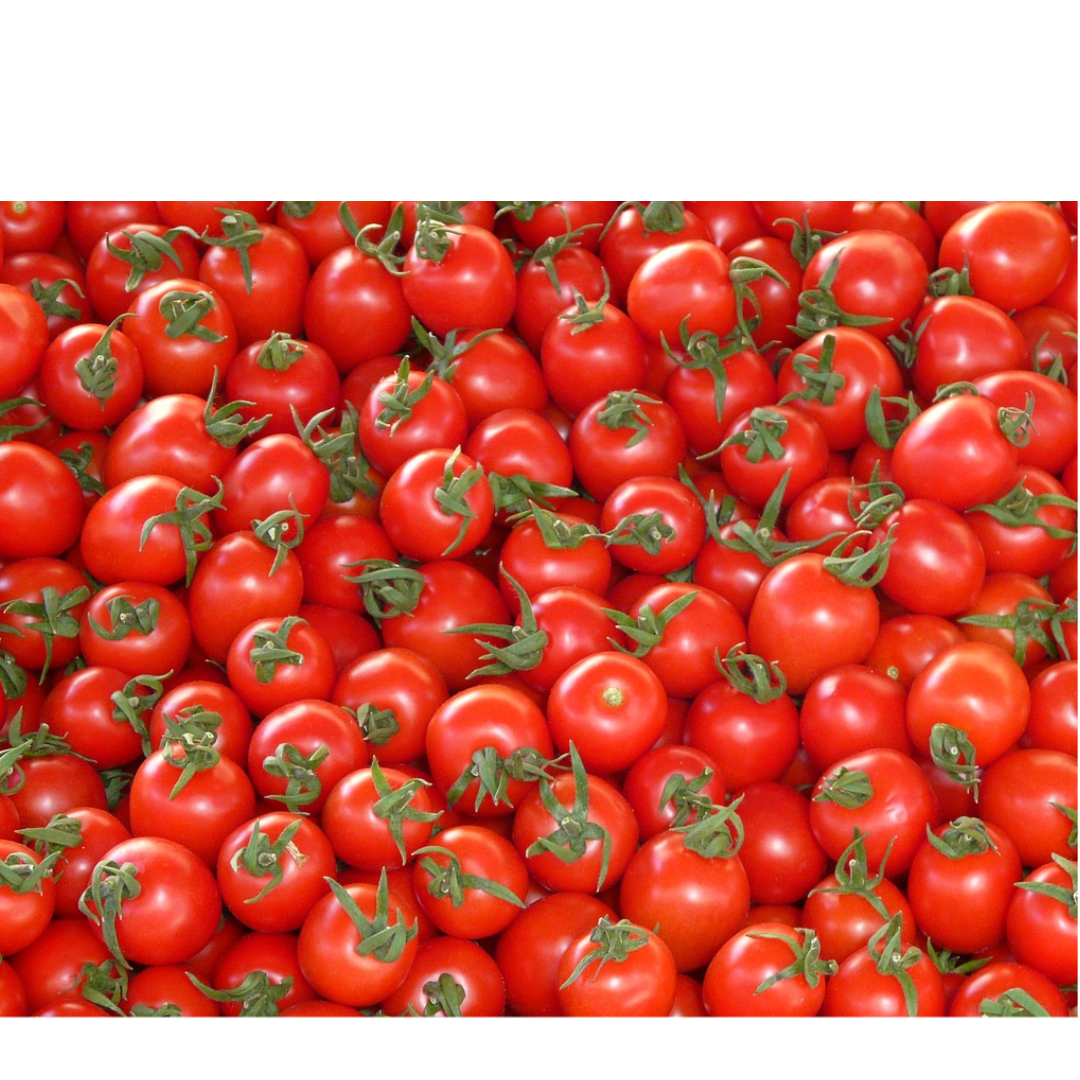Florida tomato crop looks steady, while competitive research continues

People think of oranges when they think of fresh fruit from Florida, but many native and longtime Floridians immediately think of tomatoes.
It’s a big crop for the state, compared to the tomato production in the rest of the U.S.
In 2020, tomato production in Florida comprised about half the country’s production and closer to two-thirds of its production value, according to Zhengfei Guan, University of Florida Institute for Agricultural Sciences associate professor of food and resource economics:
- Florida produced 606 million pounds of fresh-market tomatoes;
- U.S. growers produced 1.2 billion pounds;
- Florida’s tomato production was valued at $463 million; and
- U.S. tomato production was valued at $721 million.
Oh, Mexico
Yet year after year, Florida tomato growers have had to deal with more competition from Mexico — and in hotly contested ways that instigated an anti-dumping investigation, asserting that Mexican tomatoes were being sold to the U.S. through unfair trade practices.
The fight has been long, since before a 2013 Suspension Agreement on Fresh Tomatoes from Mexico.
Now, the 2019 Tomato Suspension Agreement is entering its third year, Michael Schadler said, speaking on behalf of the Florida Tomato Exchange, where he serves as the executive vice president.
“While the agreement made notable improvements compared to the previous deals, we remain concerned about the Commerce Department’s ability to properly monitor and enforce the terms. This will be an important focus for us this coming season,” Schadler said. “While most companies follow the rules, any cheating can wreck the market for everyone, hurting suppliers of both Mexican and Florida tomatoes.”
Schadler encouraged anyone in the trade to report any suspicious activity or known violations to the TomatoMonitor.com website.
Also, University of Florida scientists are studying ways to gain a competitive edge, possibly by growing more and bigger fruit.
In the lab and in the field, scientist Tong Geon Lee researches the right combination of genes to expand the size of individual tomatoes and to help growers increase their yields.
“Fruit size, especially large fruit, is a particularly important trait for fresh-market tomato production, especially in the United States, because of the market demand,” Lee said in a news release. “Growers could make more money if they have tomato plants that produce more large fruit on each plant.”
Florida’s annual tomato truck shipments have dropped by about 40% in the last five years, according to the U.S. Department of Agriculture. The average shipping point price for Florida tomatoes has fluctuated wildly week to week since January 2019, from as low as $6.78 to as high as $33.95.
To help Florida growers gain better market advantage, Lee used a combination of genome-sequencing, statistics and advanced math to find a consistent pattern of DNA associated with increased tomato production and size. He presented his latest research to growers at the September Florida Tomato Conference in Labelle, Fla.
Any increase in tomato production depends greatly on how well Lee can line up tomato genes with phenotypic traits such as flavor, disease- and pest-resistance. Those matchups are known as “DNA association signals.”
Lee and his research team have identified several DNA-association signals with desirable traits by focusing on current tomatoes bred by scientists at UF/IFAS and other institutions.
“With the completion of this project, we should eventually be able to provide the information necessary for the enhancement of tomato yield through breeding,” Lee said in the release. “Especially high yield is important, because with it, we can help ensure food security with good-quality tomatoes. Farmers can increase profits as well.”

Tomato Crop
By mid-November, tomato harvesting was continuing in Central Florida, mostly southeast of Tampa bay since early to mid-October, said Schadler, the manager of the Florida Tomato Committee.
As usual grape tomatoes were the first ready for harvest, and volume will continue to grow through the fall, he said. Round and roma tomatoes kicked off in mid to late October with pretty good volume by the end of the month.
“We were slowed down by rains in early November but have settled into normal production volume as we enter the second half of the month,” Schadler said.
The crop quality looks good with well-distributed sizing. Growers expect to have normal volume through the remainder of the fall and into the South Florida winter deal, he said.
“We should have steady production of round, roma, grape and cherry tomatoes from now through the end of May,” Schadler said. Round tomatoes will make up about 70% of the crop throughout the fall, winter and spring.
The Florida Tomato Committee only tracks round tomatoes that are shipped out of the state. That number has hovered at about 22 million boxes (25-pound equivalents) each of the last two seasons, he said.
While this number doesn’t account for total round tomato production in the state, it includes the vast majority.
Basically, Florida round tomato production of looks steady and similar to recent years so far for the end of 2021 and first quarter of 2022.
Florida growers should have about the same volume of roma, cherry and grape tomatoes as last season too, Schadler said.







